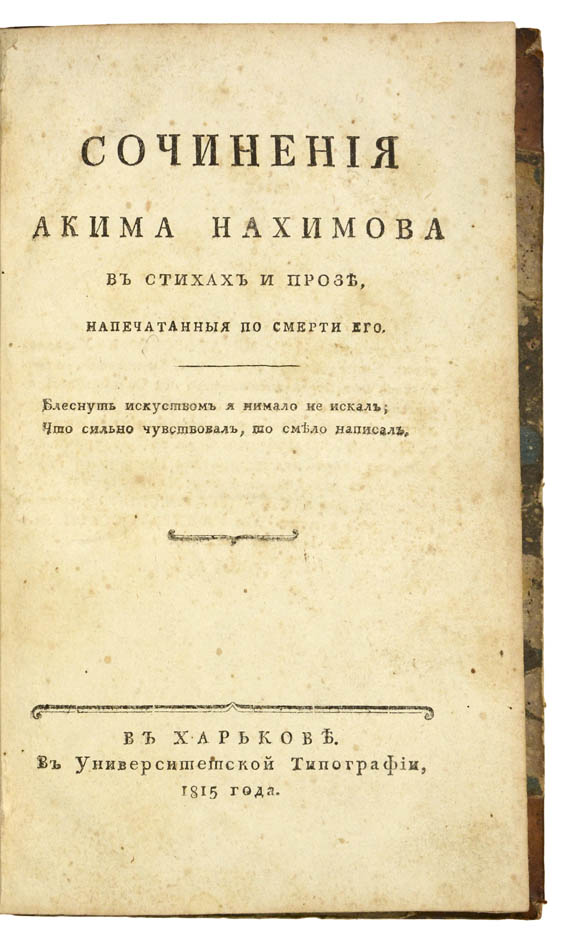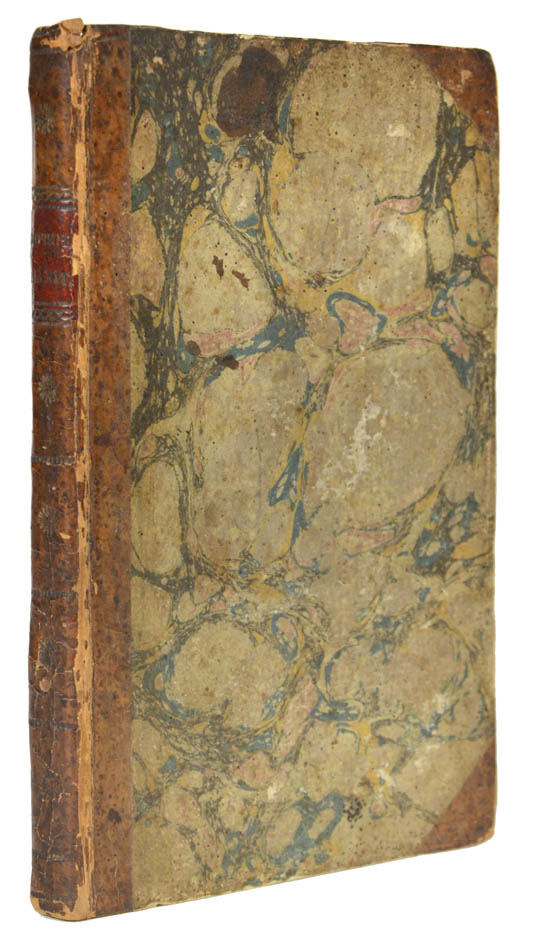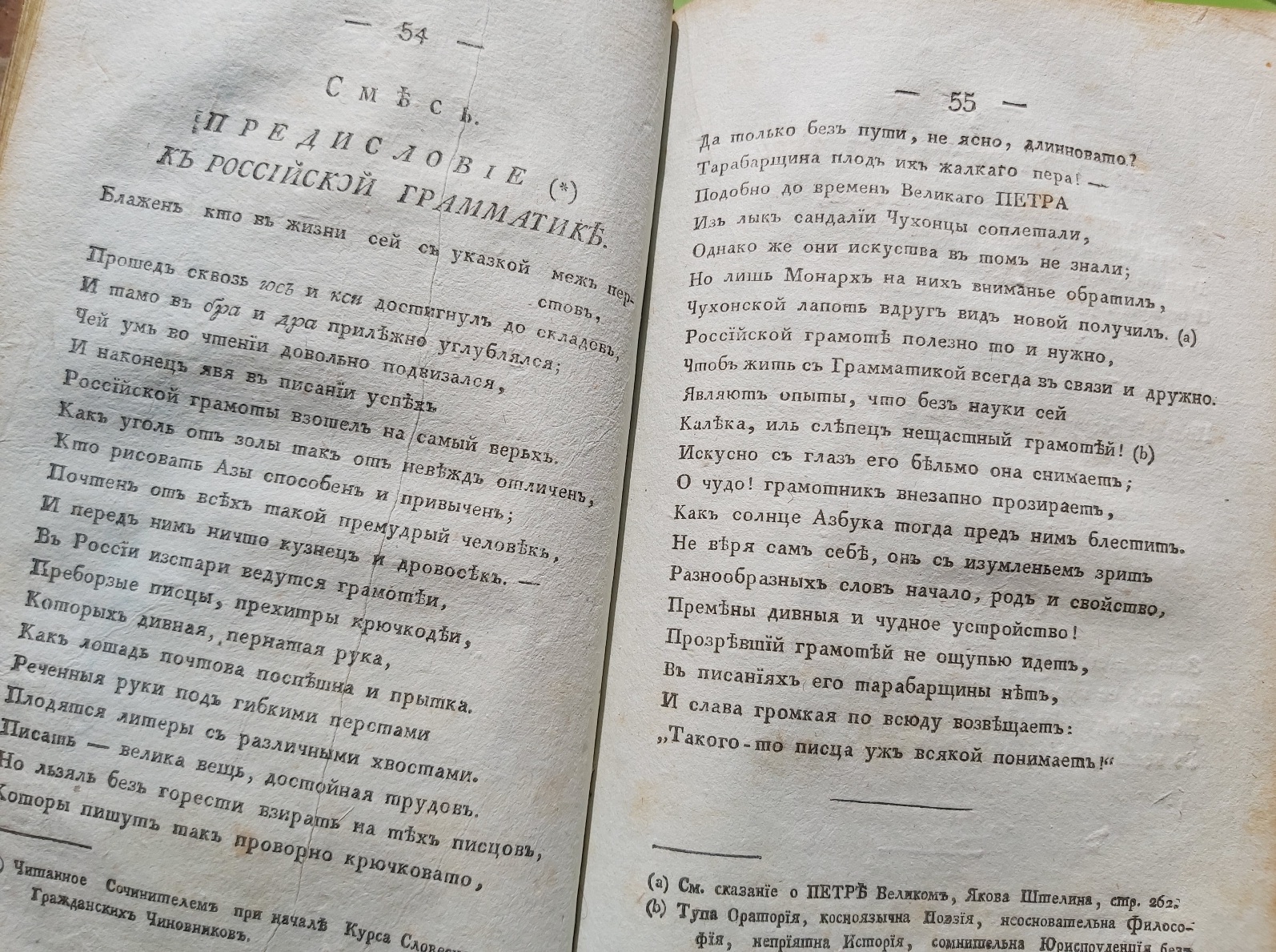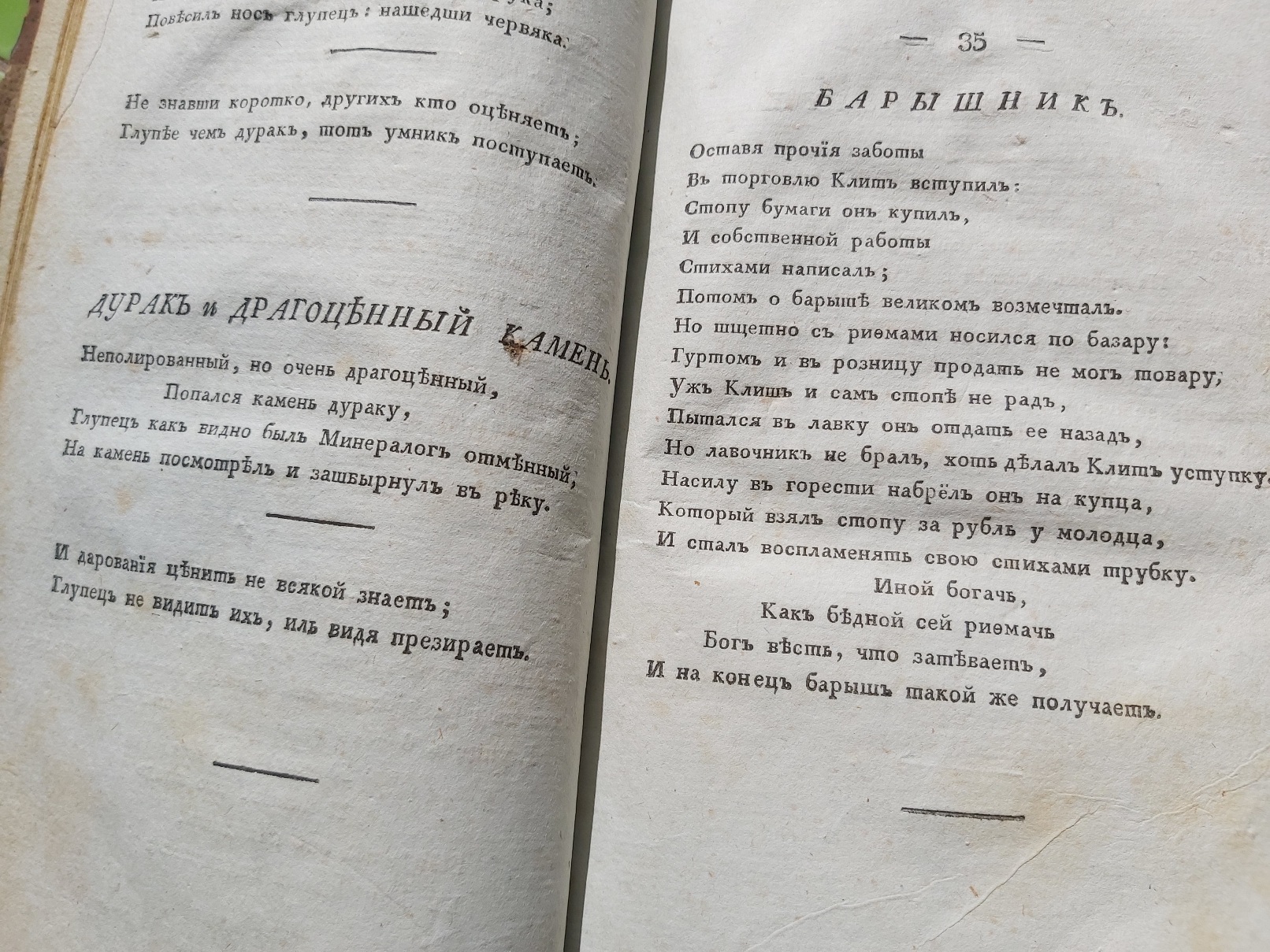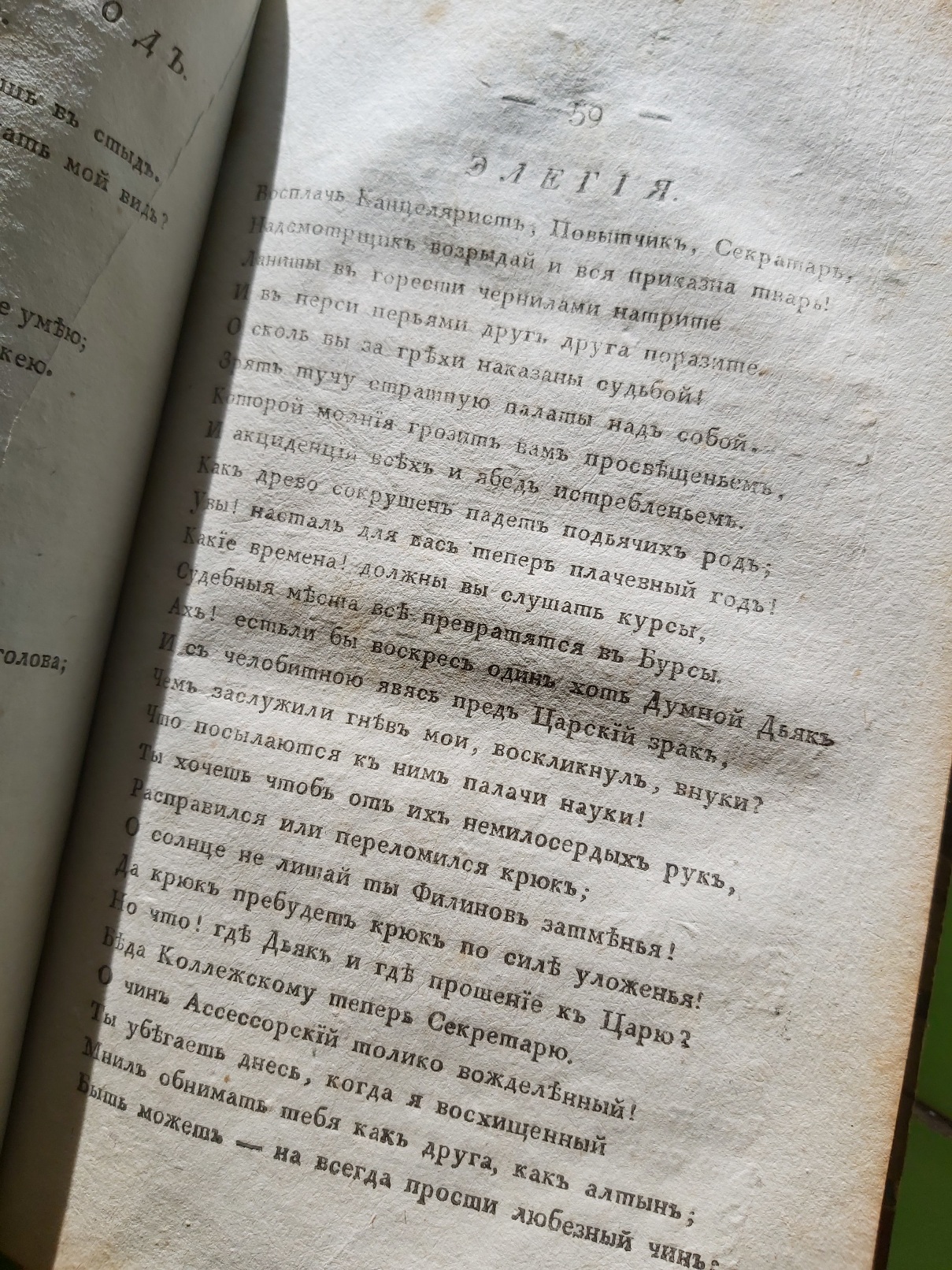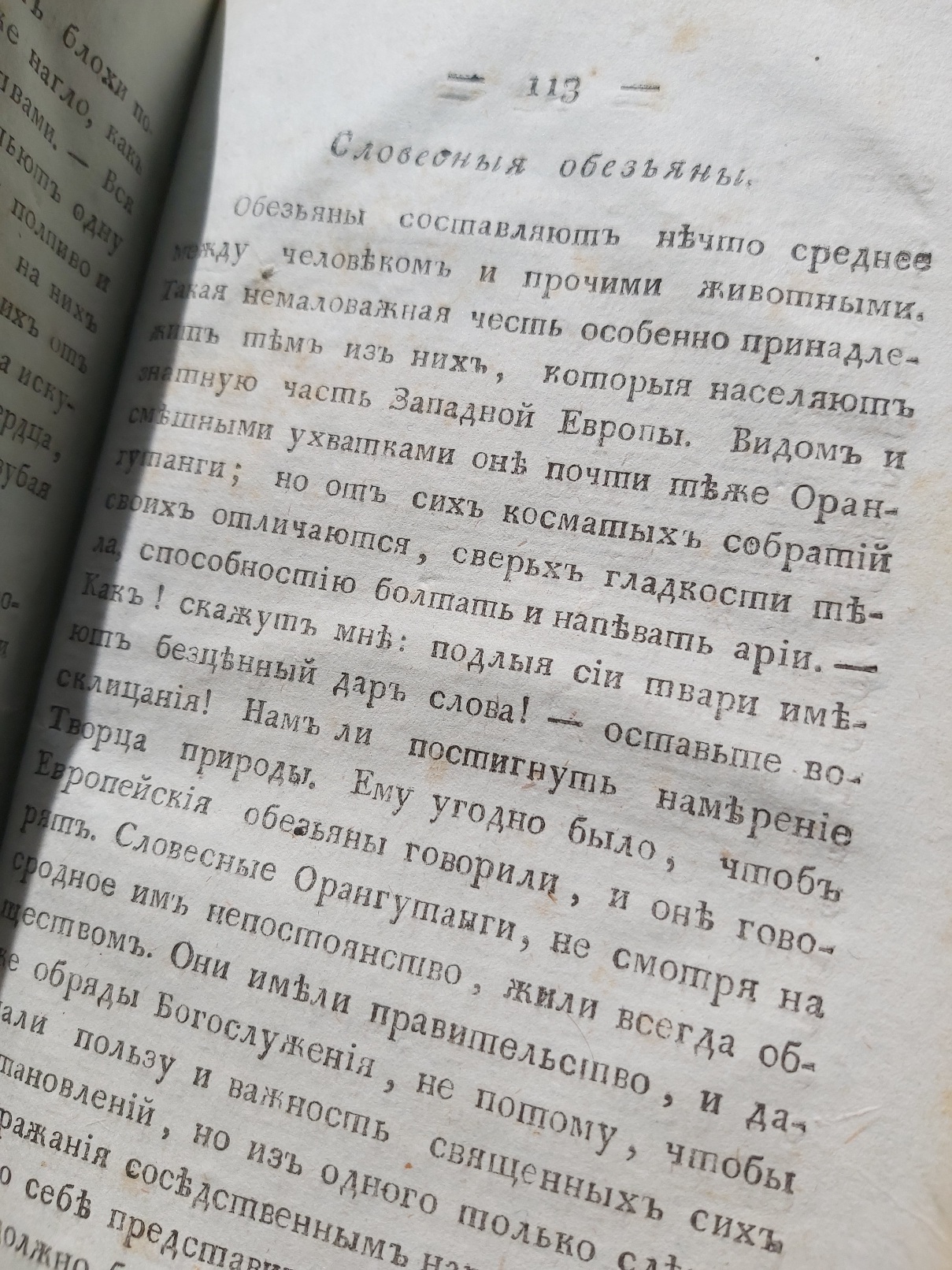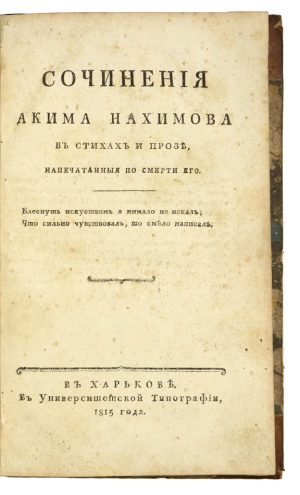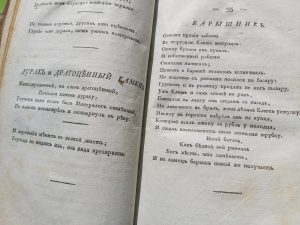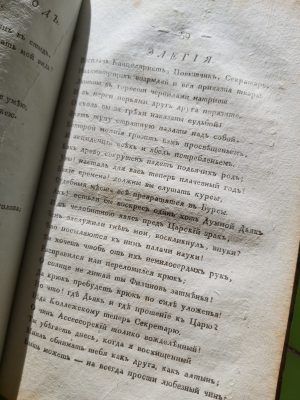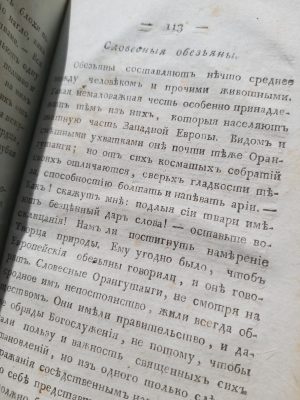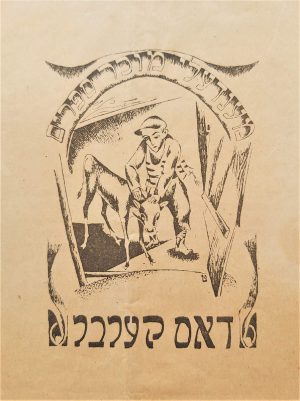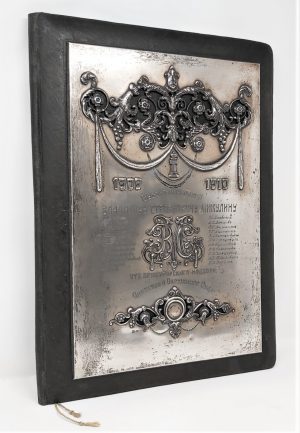Our Notes & References
Very rare first edition of the only book by the ‘Ukrainian Krylov’. Not in WorldCat or Copac, nor at auction outside Russia; we could locate only one holding in Russia (RNB, St Petersburg) and one copy at auction there.
The poet, satirist and the uncle of the distinguished naval commander Pavel Nakhimov, Akim Nikolaevich (1782-1814) was born near the city of Kharkiv and returned there after a brief stint as an official in St. Petersburg. Well educated and fluent in French, German, English and Latin, he taught poetry, grammar and rhetoric at Kharkiv University before retiring early to his family estate in 1811 and dedicating himself to literature at a time when the child Pushkin was trying his first verses. He died of phthisis at the age of 32.
“Nakhimov made a great name for himself in the literature of his time” (Losievskii, our translation here and below), although he published very little during his short lifetime, and the few works that he did publish appeared only in periodicals, often anonymously. His popular poems and fables satirising bureaucracy, corruption, snitching, and the Russian nobility’s obsession with French ‘high culture’ “reflected to a certain extent the sentiments of Ukrainian peasants, soldiers and various intelligentsia” (Losievskii). His fables rank among “the best examples of this genre of literature of the pre-Krylov era” (André Savine, most likely quoting the Rus. bib. Slovar Polovtsova).
This first collection of Nakhimov’s works was published only shortly after his death, through the efforts of his fellow Kharkiv satirist and fabulist Vasilii Maslovich (1792-1841), who additionally wrote the book Pamiat o kharkovskom stikhotvortse Akime Nikolaeviche Nakhimove [In Memory of Kharkiv poet Akim Nikolaevich Nakhimov; St Petersburg, 1816]. The collection contains nineteen of his fables, including his most famous and praised “Moska i sobaka na priviazi” [“Pug and the Dog on a Leash”], “Zhivopisets” [“Painter”] and “Zhelezo i kuznets” [“Iron and Blacksmith”]. Maslovich added many of Nakhimov’s works: humorous epigrams (such as “To Polish King Popiel”, “To Fashionable Women”, “To Horace’s imitator”), epitaphs (including “To Peter the Great” and “To the Pug who Died from Love”), poems and various curiosities, such as “The Historical and Philosophical Discourse on the Flea”. It also includes the pieces mentioned by Smirnov-Sokolskii, with the satirical “Elegiia” which brought fame to Nakhimov when first published in 1808, and his “Introduction [NB in verse] to Russian Grammar”.
The book was well received and was followed by six further editions, published between 1816 (in Kharkiv) until 1852 (in St Petersburg).
This is a pleasant example in its first binding, unfortunately originally bound without the table of contents and the list of subscribers; the text is however complete.
Provenance
K. A. ?Shchenaevich (ink stamp on rear pastedown); ?bookseller’s small ink stamp on rear pastedown.
Bibliography
Sm. Sok. 887; Belinskii, Complete Works (Moscow, 1954), vol. V, p. 130; I. Losievskii, “Do 200-richchia z dnia narodzhennia Iakyma Nakhimova” // Prapor, #9, 1982, pp. 121-123; I. S-n (anonymous), “Nakhimov Akim Nikolaevich”, Russkii biograficheskii slovar A. A. Polovtsova, T. 11, 1914, pp. 147-148.
Physical Description
Octavo (21 x 13 cm). pp. 136, including title.
Binding
Contemporary russian sprinkled half calf over marbled boards, flat blind-tooled spine, red morocco label lettered in Cyrillics
Condition
Binding a bit soiled and rubbed, esp. at extremities and hinges, spine head a bit torn; light foxing throughout, a bit stronger at beginning and end, MISSING at end VI pp. t.o.c. and [3] pp. list of subscribers – but main text complete.

